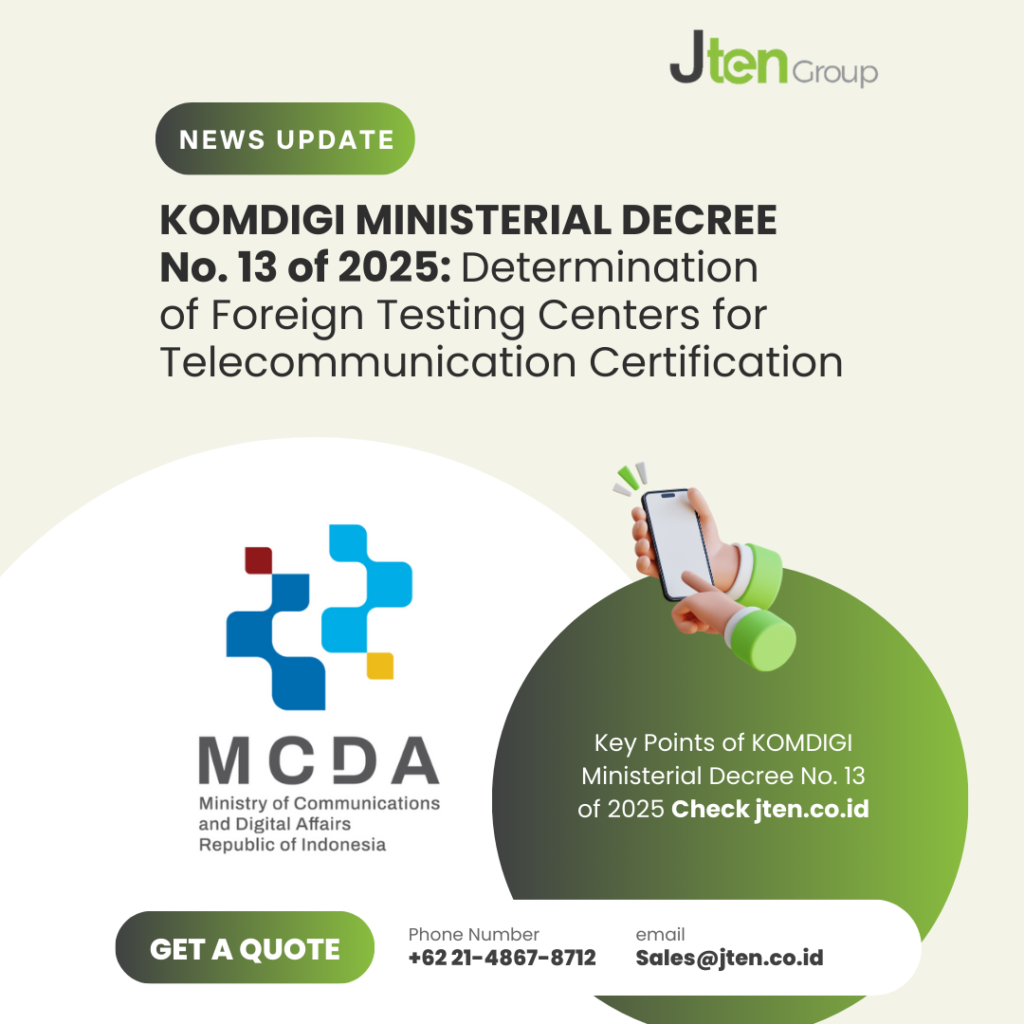How to Apply TKDN Certification in Indonesia
TKDN Certification, or Tingkat Komponen Dalam Negeri, is a mandatory requirement for many businesses operating in Indonesia, especially those engaged in supplying goods and services to government projects or state-owned enterprises. TKDN Certification verifies the percentage of local content used in your products or services. In recent years, the Indonesian government has enforced TKDN compliance more rigorously to support domestic industries, reduce dependency on imports, and boost national competitiveness. If you plan to supply products or services in sectors such as telecommunications, construction, energy, or manufacturing, understanding how to apply for TKDN Certification is essential. Here’s a step-by-step guide to help you navigate the process. 1. Understand TKDN Requirements Before starting your application, it’s crucial to learn which regulations apply to your products or services. TKDN calculation standards are regulated by the Ministry of Industry and, in some sectors, in collaboration with other ministries or regulatory bodies. Generally, the TKDN value is calculated based on: Each sector has specific thresholds you must meet. For example, certain telecommunication equipment must have a minimum TKDN percentage to qualify for government procurement. 2. Prepare Documentation Applying for TKDN Certification requires detailed documents that prove the origin and proportion of your local content. Common documents include: Ensure all documents are accurate and complete. Incomplete submissions often delay the process. 3. Engage a Verification Agency The Ministry of Industry authorizes independent verification agencies (Surveyors) to assess TKDN calculations. Popular surveyors include Sucofindo, Surveyor Indonesia, and B4T. After selecting your preferred surveyor, you must submit your application and supporting documents to them. The surveyor will: This stage is critical because any discrepancies can lead to a rejection or a lower TKDN score. 4. Verification and Assessment The verification process usually takes 30–60 working days, depending on your product’s complexity and the surveyor’s workload. The assessor will calculate the actual TKDN percentage and create a report summarizing their findings. During this phase, your team must be available to assist with clarifications or provide additional evidence if requested. 5. Issuance of TKDN Certificate After the assessment is complete, the surveyor will issue an official TKDN Certificate stating your product’s local content percentage. This certificate is valid for a specific period, usually 2–3 years, depending on the regulations. With the certificate in hand, you can: Remember, any changes in your production process, materials, or suppliers may require you to recertify. 6. Maintain Compliance Once you’ve obtained the certification, it’s vital to maintain compliance by: Non-compliance or falsification of data can lead to sanctions, including certificate revocation and blacklisting from procurement opportunities. Get Professional Assistance from Jten Group Navigating the TKDN Certification process can be complex and time-consuming. From document preparation to verification, every step requires precision and understanding of Indonesian regulations. Jten Group is here to help you every step of the way. Our experienced consultants have assisted numerous companies across different industries to successfully obtain their TKDN Certification. We offer: ✅ In-depth regulatory guidance.✅ Complete document preparation support.✅ Assistance coordinating with verification agencies.✅ Strategies to optimize your TKDN score. Don’t risk delays, rejection, or non-compliance penalties. Contact Jten Group today for a free consultation and discover how we can make your TKDN Certification process smooth and efficient. Ready to start? Reach out to Jten Group now and ensure your business meets Indonesia’s local content requirements with confidence.


